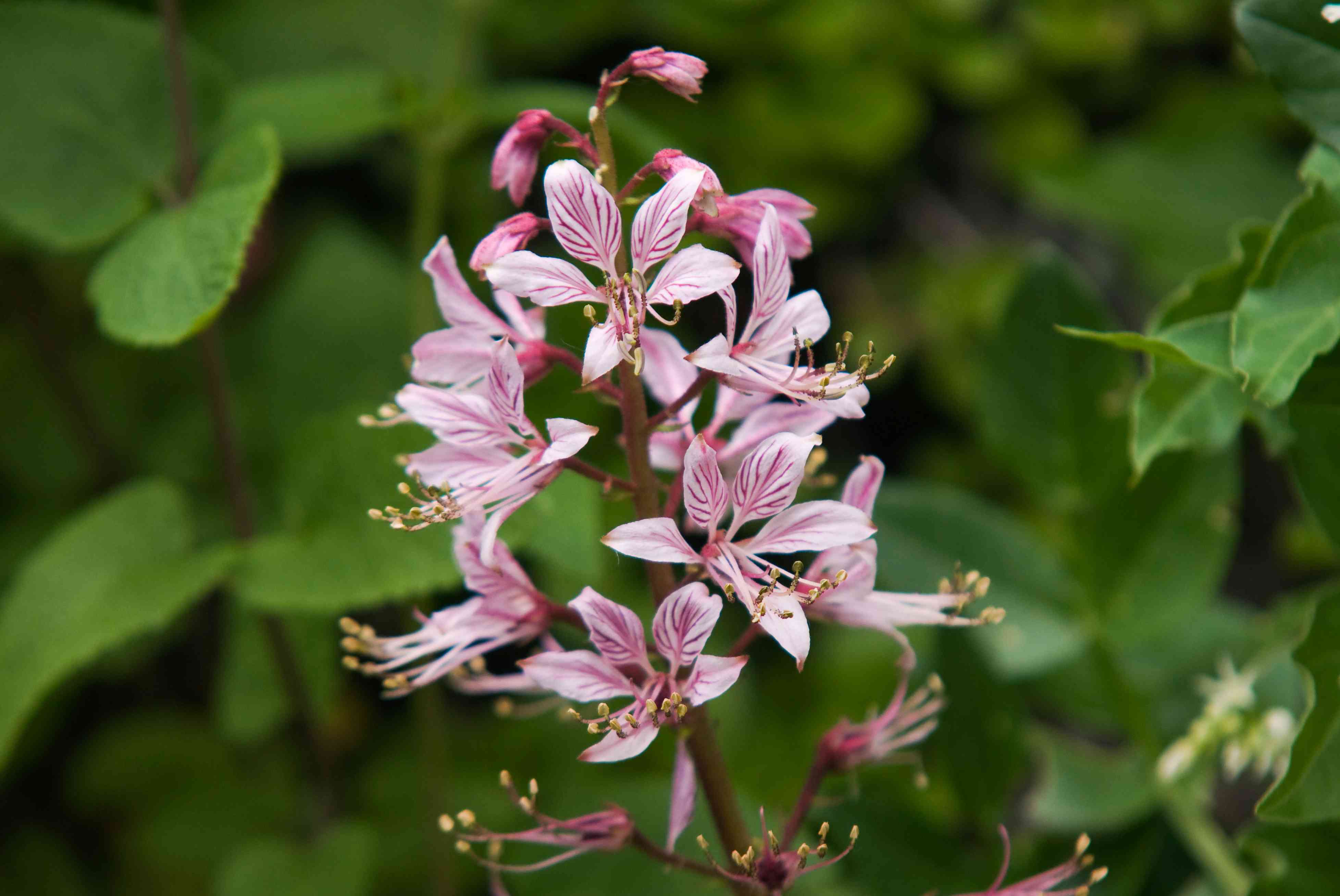
Dictamnus, also known as burning bush or dittany, is a fascinating and enchanting plant that has captured the attention of plant enthusiasts and gardeners alike. With its delicate flowers, aromatic leaves, and intriguing qualities, Dictamnus is a species that never fails to leave a lasting impression.
In this article, we will explore sixteen intriguing facts about Dictamnus that will not only pique your curiosity but also enhance your understanding of this unique plant. From its ancient medicinal uses to its ability to produce a mystical phenomenon known as “gasoline plant,” join us on a journey through the realm of Dictamnus and uncover the secrets it holds.
Key Takeaways:
- Dictamnus, also known as the burning bush or gas plant, is a fascinating perennial herbaceous plant with fragrant flowers and the ability to produce flammable vapor.
- With its showy flowers, unique burning bush phenomenon, and historical significance, Dictamnus is a low-maintenance, ornamental plant that attracts pollinators and holds cultural significance.
Dictamnus is a perennial herbaceous plant.
Dictamnus, also known as the burning bush or gas plant, is a fascinating perennial herbaceous plant that belongs to the Rutaceae family. It is known for its fragrant flowers and its ability to produce flammable vapor.
The name “Dictamnus” has Greek origins.
The name “Dictamnus” is derived from the Greek word “diktamnon,” which means “torch.” This name perfectly reflects the plant’s flammability and the incense-like fragrance of its flowers.
Dictamnus is native to Europe and Asia.
This intriguing plant can be found in various regions of Europe, including the Mediterranean, as well as parts of Asia. It thrives in open fields, meadows, and rocky slopes.
Dictamnus produces volatile oils.
The volatile oils produced by Dictamnus give the plant its characteristic fragrance. When the plant is in full bloom, it emits a delightful scent that attracts bees and other pollinators.
The leaves of Dictamnus are highly toxic.
While the flowers of Dictamnus are enchantingly fragrant, it’s important to note that the leaves and sap of the plant are toxic. They contain various compounds that can cause skin irritation and even blistering.
Dictamnus has been used for medicinal purposes.
In traditional medicine, certain parts of Dictamnus have been used to treat various ailments. However, due to its toxicity, it is crucial to exercise caution and seek professional advice before using it for medicinal purposes.
The flowers of Dictamnus are white or pink.
The flowers of Dictamnus come in shades of white and pink. They are arranged in clusters at the top of tall stems, creating a striking and beautiful display when in full bloom.
Dictamnus is a low-maintenance plant.
Dictamnus is a hardy plant that requires minimal care. It can tolerate a wide range of soil types and can thrive in both full sun and partial shade. Additionally, it is relatively resistant to pests and diseases.
The dried fruits of Dictamnus are used in herbal tea.
The dried fruits of Dictamnus are sometimes used in herbal tea blends. The tea is believed to have soothing properties and is often used to promote relaxation and calmness.
Dictamnus has a long history of cultural significance.
Throughout history, Dictamnus has held cultural significance in various regions. In some traditions, it has been associated with protection against evil spirits, while in others, it symbolizes purity and beauty.
The root of Dictamnus has a strong fragrance.
When the root of Dictamnus is crushed or disturbed, it releases a strong and distinctive fragrance. This unique scent adds to the plant’s allure and makes it a sensory delight in the garden.
Dictamnus is an excellent addition to herb gardens.
Due to its fascinating characteristics and historical significance, Dictamnus makes a wonderful addition to herb gardens. Its beautiful flowers, fragrance, and low-maintenance nature make it an appealing choice for gardeners.
The burning bush phenomenon of Dictamnus.
One of the most intriguing aspects of Dictamnus is its ability to ignite when its vapor is lit. This phenomenon, known as the burning bush, is a captivating sight and has amazed people for centuries.
Dictamnus attracts pollinators.
The fragrant flowers of Dictamnus attract a wide range of pollinators, including bees and butterflies. These pollinators play a crucial role in the plant’s reproduction and contribute to the overall biodiversity of the surrounding ecosystem.
Dictamnus has ornamental value.
With its showy flowers, distinctive fragrance, and unique burning bush phenomenon, Dictamnus is often cultivated for its ornamental value. It can be a stunning focal point in a garden or used to create striking borders and color contrasts.
Dictamnus is steeped in mythology and folklore.
Throughout history, Dictamnus has been mentioned in various mythologies and folklore. It has been associated with magical properties, used in rituals, and believed to possess mystical powers of protection and healing.
Conclusion
Dictamnus is a fascinating plant that captivates both gardeners and nature enthusiasts alike. With its stunning flowers, unique fragrance, and intriguing characteristics, it is no wonder that this plant has gained popularity over the years. Whether you are interested in its medicinal properties, its historical significance, or simply want to add it to your garden, Dictamnus is sure to amaze and delight. So, why not explore the world of Dictamnus and discover its wonders for yourself?
FAQs
Q: Can Dictamnus be grown in containers?
A: Yes, Dictamnus can be grown in containers. However, it is important to choose a large container to accommodate its deep root system and provide ample space for growth.
Q: Is Dictamnus easy to grow?
A: Dictamnus can be quite challenging to grow, as it requires specific soil conditions, adequate sunlight, and regular care. It is recommended for experienced gardeners or those willing to put in extra effort.
Q: Does Dictamnus have any medicinal properties?
A: Yes, Dictamnus has been used in traditional medicine for its anti-inflammatory and diuretic properties. However, it is important to consult with a healthcare professional before using it for medicinal purposes.
Q: Can Dictamnus tolerate cold climates?
A: Yes, Dictamnus is cold hardy and can tolerate freezing temperatures. However, it should be provided with a layer of mulch during winter to protect the roots.
Q: How often should Dictamnus be watered?
A: Dictamnus prefers well-drained soil and should be watered regularly, especially during dry periods. However, it is important not to overwater, as it can lead to root rot.
Dictamnus captivates with its intriguing qualities, but nature's wonders don't stop there. Explore the vibrant beauty of Yellow Loosestrife, a perennial plant that paints landscapes with golden hues. Uncover the medicinal secrets of thyme, a versatile herb steeped in history and healing properties. Ready to get your hands dirty? Dive into the world of gardening and discover the joys of growing your own vegetables. Each plant holds a unique story waiting to be discovered, so let curiosity be your guide as you embark on a journey through the fascinating realm of flora.
Was this page helpful?
Our commitment to delivering trustworthy and engaging content is at the heart of what we do. Each fact on our site is contributed by real users like you, bringing a wealth of diverse insights and information. To ensure the highest standards of accuracy and reliability, our dedicated editors meticulously review each submission. This process guarantees that the facts we share are not only fascinating but also credible. Trust in our commitment to quality and authenticity as you explore and learn with us.


